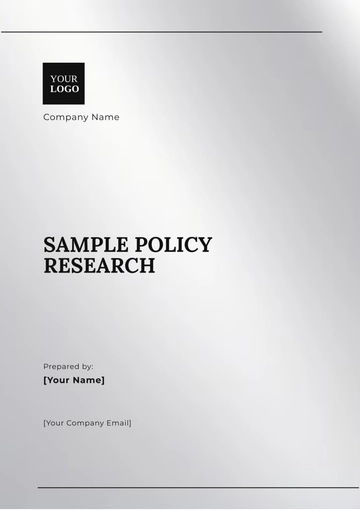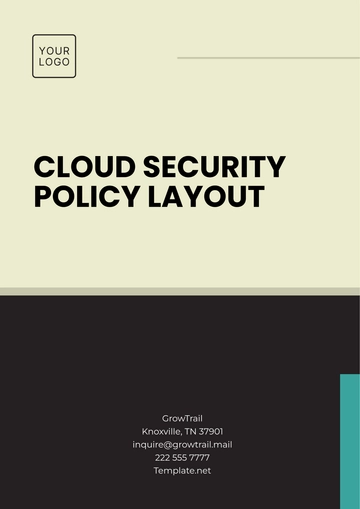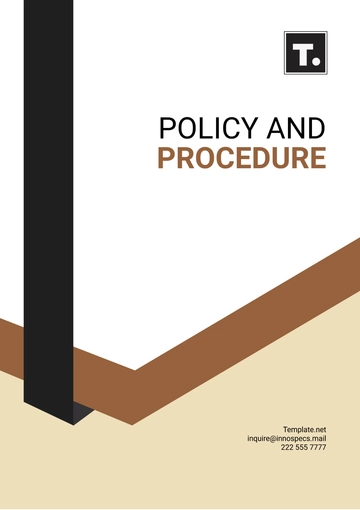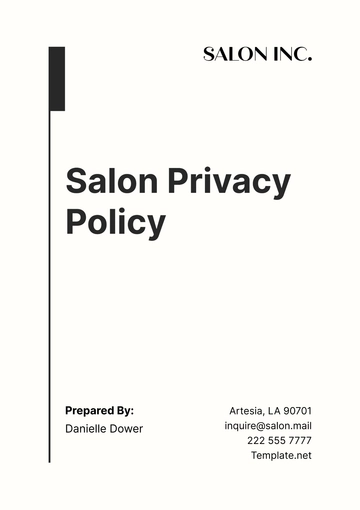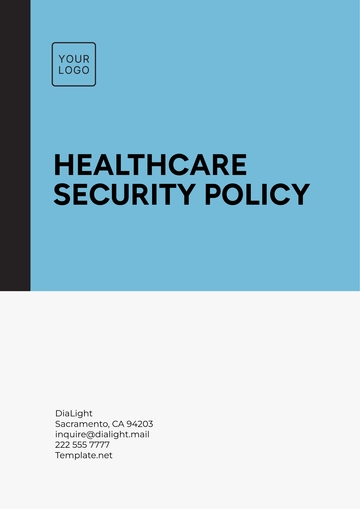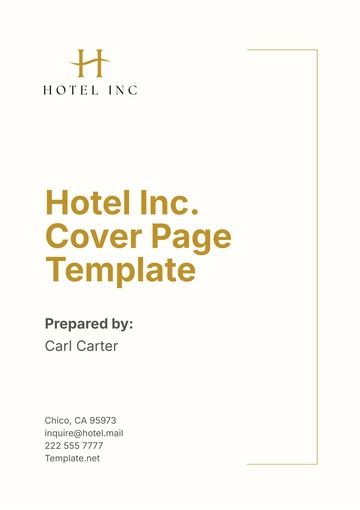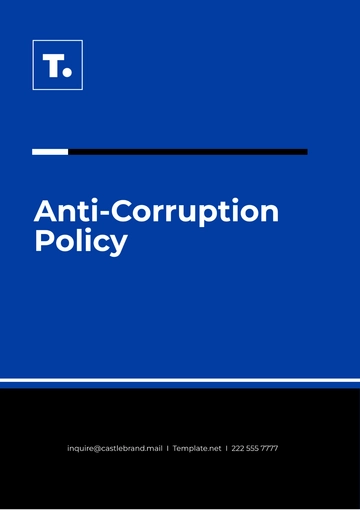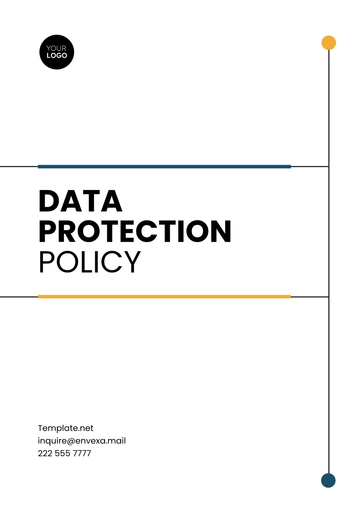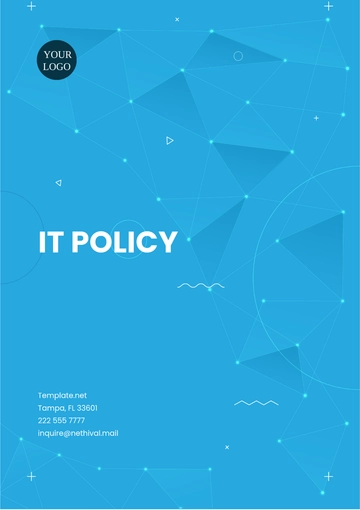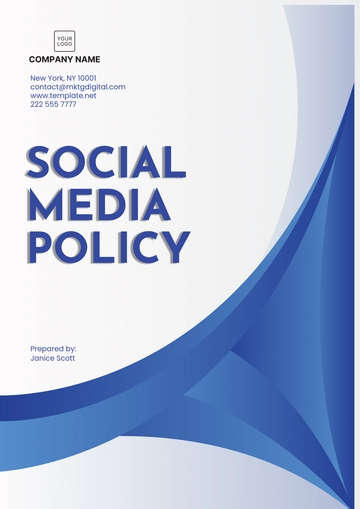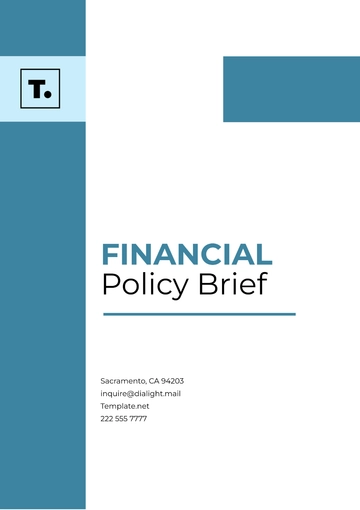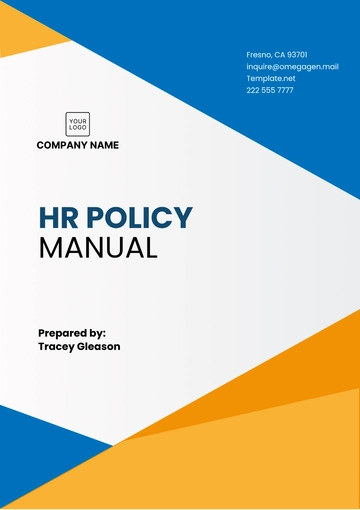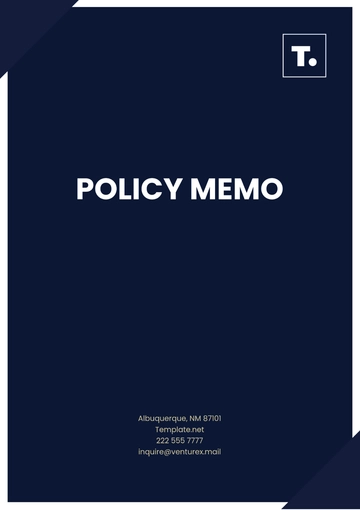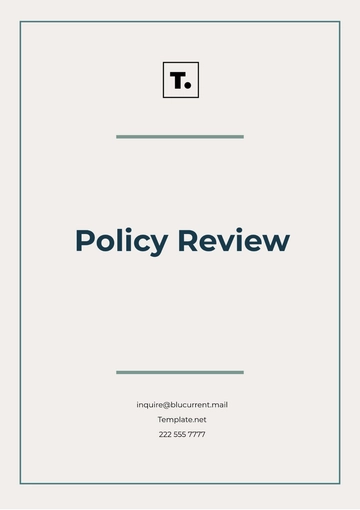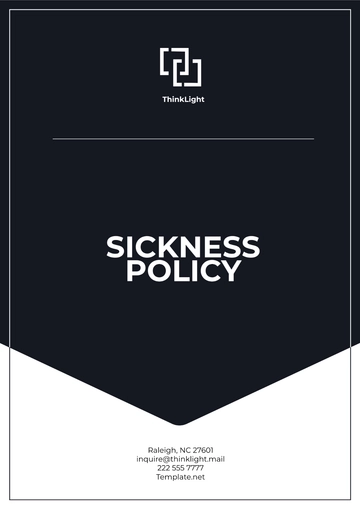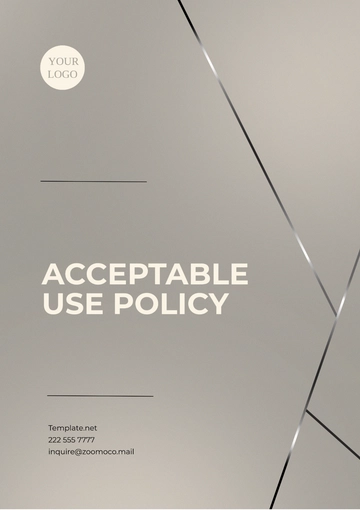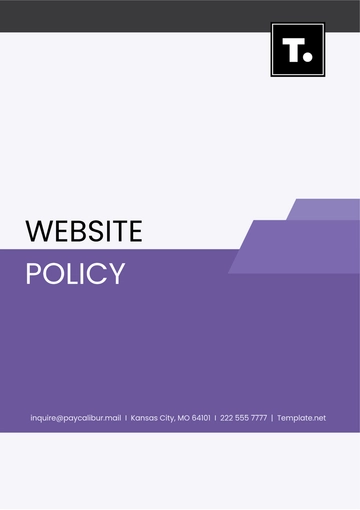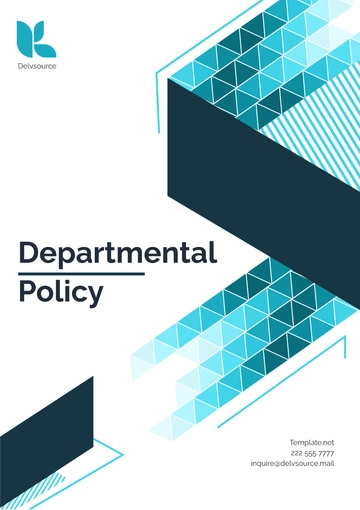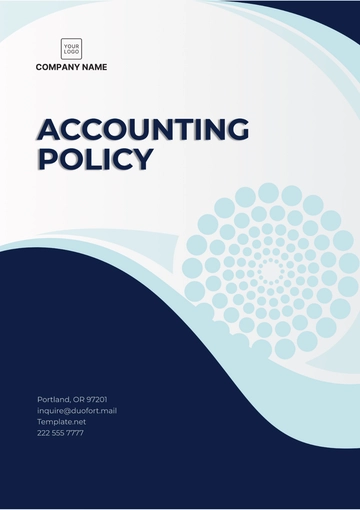Free Simple Hotel Cancellation Policy
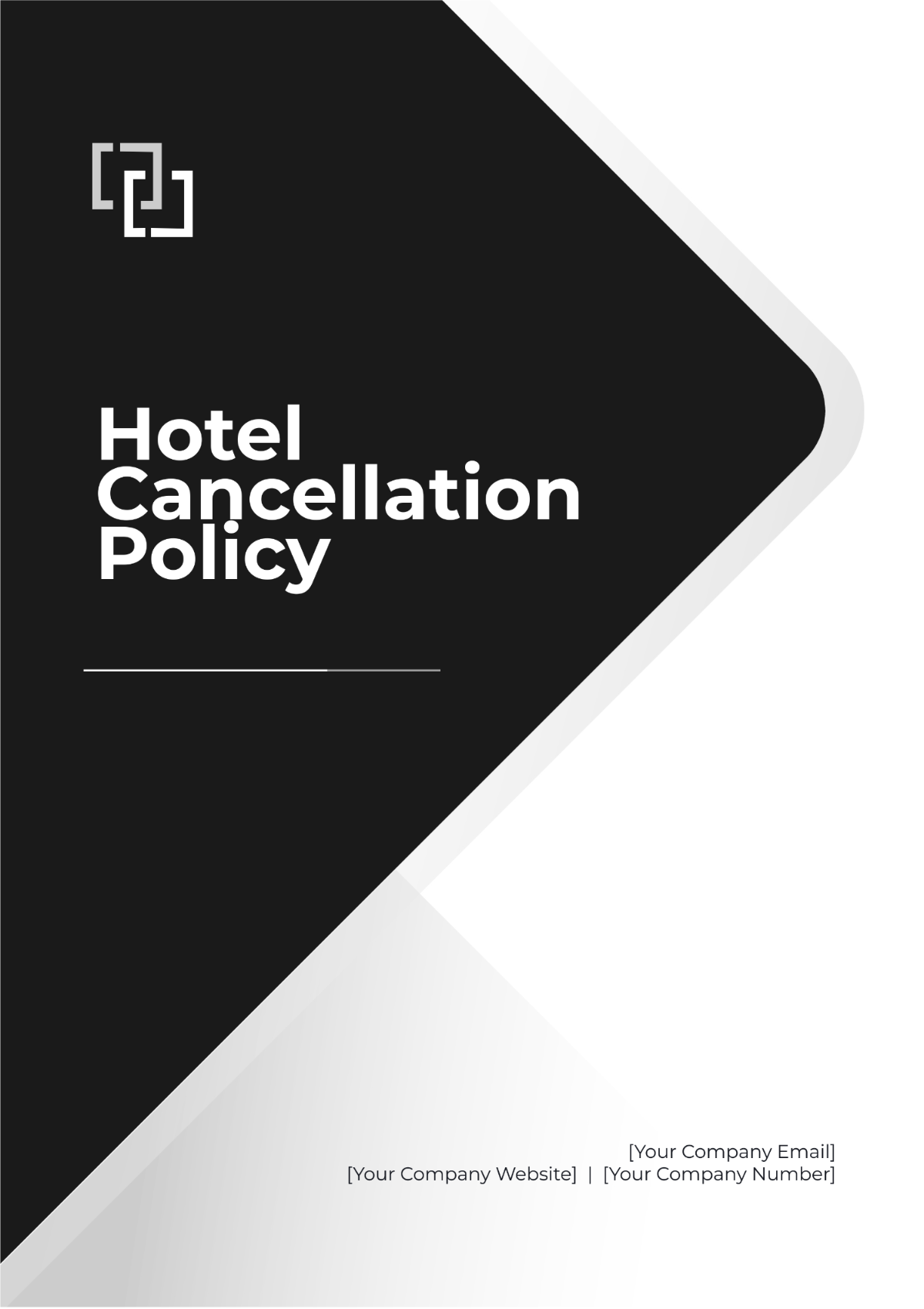
I. Introduction
A. Purpose
The purpose of this policy is to outline the procedures and guidelines for handling hotel room cancellations at [Your Company Name]. It aims to provide clarity and fairness for both the hotel and its guests, ensuring a smooth and transparent process. By establishing clear rules and expectations, we seek to minimize confusion and enhance guest satisfaction. This policy also helps the hotel manage its resources effectively, allowing for better planning and service delivery.
B. Scope
This policy applies to all reservations made at [Your Company Name], including online, phone, and in-person bookings. It covers individual and group bookings and addresses various scenarios and exceptions that may arise. Whether a guest is booking a single room or an entire block of rooms for an event, these guidelines ensure consistent and fair treatment. By standardizing our approach, we can provide a reliable and predictable experience for all guests.
C. Principles
The policy is based on principles of fairness, transparency, and customer service excellence. It seeks to balance the operational needs of the hotel with the expectations and rights of guests. To achieve this, the policy is guided by the following principles:
Fairness: Ensuring that cancellation fees and policies are reasonable and proportionate.
Transparency: Clearly communicating cancellation terms to guests at the time of booking.
Flexibility: Offering accommodations for special circumstances, such as medical emergencies or natural disasters.
Consistency: Applying the policy uniformly to all guests to maintain fairness and trust.
II. General Cancellation Policy
A. Standard Cancellation
For most reservations, the following standard cancellation guidelines apply. These guidelines ensure guests are aware of their responsibilities and the potential charges they may incur:
Cancellation Period: Guests must cancel their reservations at least 48 hours before the check-in date. This period allows the hotel to manage room inventory effectively.
Cancellation Fee: A cancellation fee equivalent to one night's stay will be charged if the reservation is canceled within 48 hours of the check-in date. This fee compensates the hotel for the potential loss of revenue.
Refund Process: Any refunds due will be processed within 7-10 business days. The time frame ensures that administrative processes are completed efficiently.
Notification Method: Cancellations must be made through the same channel as the booking. This consistency helps streamline the process and maintain accurate records.
No-Show Policy: If a guest does not arrive and has not canceled the reservation, a no-show fee equivalent to one night's stay will be charged. This policy ensures that the hotel can manage its resources effectively.
B. Non-Refundable Reservations
Some reservations may be non-refundable. These are typically offered at a discounted rate, and guests should be aware of the terms and conditions at the time of booking:
Non-Refundable Terms: Guests who book non-refundable rates are not eligible for any refund upon cancellation. This strict policy allows the hotel to offer lower rates.
Payment Requirements: Full payment is required at the time of booking for non-refundable reservations. This payment secures the booking and is non-refundable.
Modification Restrictions: Non-refundable reservations cannot be modified. Any changes would require cancellation and rebooking, subject to availability and pricing at the time of rebooking.
Communication of Terms: The non-refundable nature of the booking must be clearly communicated to guests at the time of booking. Transparency ensures guests understand the commitment they are making.
III. Group Bookings
A. Definition and Scope
Group bookings typically involve multiple rooms reserved by a single entity, such as a corporate client or a large family.
Group Size: A group booking is defined as a reservation of five or more rooms. This definition helps differentiate between individual and group bookings for policy application.
Advance Notice: Group cancellations must be made at least 30 days in advance of the check-in date. Longer notice periods allow the hotel to rebook the rooms and manage group logistics.
Deposit Policy: A non-refundable deposit of 25% of the total booking cost is required at the time of reservation. This deposit secures the booking and covers initial administrative costs.
Cancellation Fee: If a group booking is canceled within 30 days of the check-in date, a cancellation fee of 50% of the total booking cost will be charged. This fee compensates the hotel for the potential loss of revenue and resources allocated.
B. Partial Cancellations
In some cases, a group may need to cancel only a portion of their reservation.
Partial Cancellation Notice: Partial cancellations must be made at least 15 days in advance. This period allows the hotel to adjust room allocations and manage resources.
Adjustments to Deposit: The non-refundable deposit will be adjusted based on the remaining reservation. The revised deposit ensures fair compensation for the rooms still booked.
Fee Calculation: The cancellation fee for the canceled portion will be 50% of the cost of the canceled rooms. This fee structure balances fairness and compensation for the hotel.
Communication: The group leader must communicate partial cancellations through the same booking channel. Consistency in communication helps maintain accurate records and streamline the process.
IV. Special Circumstances
A. Medical Emergencies
In the event of a medical emergency, the hotel may offer exceptions to the standard cancellation policy.
Documentation Requirement: Guests must provide documentation of the medical emergency. This documentation helps verify the legitimacy of the claim.
Cancellation Fee Waiver: The hotel may waive the cancellation fee in genuine medical emergencies. This compassionate approach supports guests in difficult situations.
Refund Process: Any eligible refunds will be processed within 7-10 business days. Efficient processing ensures timely support for guests.
Communication Channel: Guests should contact the hotel directly to discuss medical emergencies. Direct communication ensures sensitive handling of such cases.
B. Natural Disasters
The policy on natural disasters ensures that guests are treated fairly and compassionately during unforeseen events, while also protecting the hotel's interests.
Force Majeure: Natural disasters are considered force majeure events. This classification exempts both the guest and the hotel from standard cancellation penalties.
Refunds and Rebooking: Guests affected by natural disasters will be offered full refunds or the option to rebook at a later date. Flexibility in rebooking supports guests in rescheduling their plans.
Communication Protocol: The hotel will communicate promptly with guests in the event of a natural disaster. Timely communication ensures that guests are informed and supported.
Safety Considerations: The hotel's priority is the safety and well-being of its guests. All decisions will prioritize guest safety during such events.
V. Refund Process
A. Processing Time
Efficient and transparent refund processes are essential for maintaining guest trust and satisfaction. Prompt processing and clear communication are key elements of this process.
Time Frame: Refunds will be processed within 7-10 business days from the date of cancellation. This time frame ensures prompt service while allowing for necessary administrative processes.
Payment Method: Refunds will be issued using the original payment method. This practice provides consistency and clarity for guests.
Communication: Guests will receive confirmation of their refund once processed. Clear communication ensures transparency and trust.
Partial Refunds: In cases where only a portion of the reservation is canceled, partial refunds will be calculated and processed accordingly. Fair handling of partial cancellations maintains guest satisfaction.
B. Exceptions
Providing exceptions demonstrates the hotel's commitment to fairness and guest support while maintaining the integrity of the refund process.
Special Circumstances: Exceptions may be made for special circumstances, such as medical emergencies or natural disasters. Flexibility in these cases supports guests in challenging situations.
Manager Approval: All exceptions must be approved by hotel management. This approval process ensures consistency and fairness.
Documentation: Guests may be required to provide documentation for exceptions. Verification ensures the legitimacy of the claims.
Case-by-Case Basis: Each exception will be considered on a case-by-case basis. Individual assessment ensures that each situation is handled appropriately.
VI. Communication and Support
A. Customer Service
Effective customer service and support enhance guest satisfaction and help manage cancellations smoothly.
Contact Information: Guests can contact the hotel's customer service team via phone, email, or online chat. Multiple contact options ensure accessibility.
Support Hours: Customer service is available 24/7 to assist with cancellations and related inquiries. Round-the-clock support ensures that guests can receive assistance whenever needed.
Staff Training: Customer service staff receive regular training on cancellation policies and procedures. Trained staff ensures accurate and helpful support.
Feedback Mechanisms: Guests are encouraged to provide feedback on their cancellation experience. Feedback helps identify areas for service improvement.
B. Communication Channels
Clear and consistent communication ensures that guests are well-informed about cancellation policies, reducing confusion and enhancing satisfaction.
Booking Confirmation: Guests receive a booking confirmation email that includes cancellation policy details. Early communication ensures guests are aware of the terms.
Reminders: Guests receive reminders about their reservation and cancellation policies closer to the check-in date. Reminders help prevent last-minute cancellations.
Website Information: The hotel's website provides detailed information about cancellation policies. Accessible online information supports guest understanding.
In-Room Information: Information about cancellation policies is available in guest rooms. Providing in-room information ensures guests can easily reference the policy.
VII. Dispute Resolution
A. Handling Disputes
Disputes related to cancellations can arise and need to be handled fairly and efficiently. The following table outlines the procedures for resolving disputes:
Step | Description | Responsible Party | Time Frame |
|---|---|---|---|
Initial Contact | Guests contact customer service to discuss the dispute | Guest | Within 24 hours |
Escalation Process | Unresolved issues are escalated to a manager | Customer Service | Within 48 hours |
Mediation Option | Mediation is offered as a neutral platform for resolution | Manager or Mediator | Within 5 business days |
Final Decision | Management makes a final decision if mediation fails | Hotel Management | Within 10 business days |
Handling disputes effectively is crucial to maintaining guest satisfaction and upholding the hotel's reputation. Clear and efficient procedures ensure that disputes are resolved fairly and promptly, minimizing the potential for escalation and dissatisfaction. By offering a structured approach that includes initial contact, escalation, mediation, and final decision-making, the hotel demonstrates its commitment to resolving issues in a systematic and transparent manner.
B. Documentation
Proper documentation supports fair and transparent dispute resolution processes, helping maintain trust and satisfaction among guests.
Record Keeping: All communications and actions related to the dispute should be documented. Thorough record-keeping ensures transparency and accountability.
Guest Documentation: Guests may be asked to provide documentation to support their claims. Documentation helps verify the legitimacy of the dispute and provides a basis for resolution.
Policy References: Relevant policy documents should be referenced during the dispute resolution process. Clear references ensure that decisions are based on established guidelines and help maintain consistency in handling similar cases.
Resolution Records: The outcome of the dispute and any actions taken should be documented. Documentation of resolutions ensures consistency and provides a record for future reference.
VIII. Payment Methods
A. Accepted Methods
[Your Company Name] offers a variety of payment methods to accommodate the diverse preferences of our guests. The following table outlines the accepted payment methods:
Payment Method | Description | Notes |
|---|---|---|
Credit/Debit Card | Visa, MasterCard, American Express, Discover | Most commonly used |
Online Payment | PayPal, Apple Pay, Google Wallet | Convenient for online bookings |
Bank Transfer | Direct transfer from bank accounts | Typically used for group bookings |
Cash | Accepted at the front desk | Limited to in-person payments |
Offering an array of payment options contributes significantly to the flexibility and convenience we provide for our guests. By accepting a wide range of payment methods, we are equipped to meet the varied preferences and requirements of our diverse clientele, thereby improving their overall experience with us.
B. Security Measures
Ensuring the security of payment transactions is a top priority at [Your Company Name]. The following measures are in place to protect guest information and prevent fraud:
Encryption Technology: All online payment transactions are secured using advanced encryption technology. This measure protects sensitive information from unauthorized access.
PCI Compliance: The hotel adheres to Payment Card Industry Data Security Standards (PCI DSS). Compliance with these standards ensures that we handle credit card information securely.
Fraud Detection: Robust fraud detection systems are in place to identify and prevent suspicious activities. These systems monitor transactions in real time to ensure the integrity of payments.
Secure Storage: Payment information is stored securely and is accessible only to authorized personnel. Secure storage practices help prevent data breaches and ensure confidentiality.
IX. Review and Update
A. Policy Review
Regular review of the Hotel Cancellation Policy ensures it remains relevant and effective. The following guidelines outline the review process:
Scheduled Reviews: The policy should be reviewed annually to assess its effectiveness and relevance. Regular reviews ensure the policy adapts to any changes in hotel operations or industry standards.
Stakeholder Feedback: Feedback from guests, staff, and other stakeholders should be collected and considered during the review process. Incorporating diverse perspectives helps identify areas for improvement.
Compliance Audit: An audit should be conducted to ensure compliance with the policy. This includes checking that procedures are being followed and identifying any areas of non-compliance.
Benchmarking: The policy should be compared with industry standards and best practices. Benchmarking helps identify gaps and opportunities for enhancing the policy.
B. Policy Update
Updating the policy is necessary to reflect changes in operations, regulations, and best practices. The following guidelines outline the update process:
Change Management: Any changes to the policy should be managed systematically to minimize disruption. This includes clear communication and training for staff to understand and implement the new guidelines.
Approval Process: Policy updates should be reviewed and approved by senior management. This ensures that updates align with the hotel's strategic goals and regulatory requirements.
Documentation: All changes should be documented, and updated versions of the policy should be distributed to relevant parties. Proper documentation ensures that everyone has access to the most current policy.
Communication: Updated policies should be communicated to all stakeholders, including guests and staff. Effective communication helps ensure that everyone is aware of and understands the new guidelines.
C. Implementation
Effective implementation of the policy requires coordination and commitment from all staff members. The following guidelines facilitate successful implementation:
Training: Staff should receive regular training on the policy and any updates. Continuous training ensures that staff are knowledgeable and can adhere to the guidelines.
Monitoring: Regular monitoring and evaluation of policy implementation are necessary to ensure compliance. This includes observing practices, gathering feedback, and making adjustments as needed.
Support Systems: Providing resources and support systems, such as access to policy documents and assistance from supervisors, helps staff comply with the policy. Support systems facilitate adherence and address any challenges that may arise.
Continuous Improvement: The policy should be part of a continuous improvement process, with regular assessments and updates based on feedback and performance. This approach ensures the policy remains effective and relevant.
D. Communication Plan
A clear communication plan is essential for ensuring that all stakeholders are informed about the policy and its updates. The following guidelines outline the communication process:
Internal Communication: Regular internal communications, such as meetings and emails, should be used to inform staff about policy updates and training sessions. Ensuring that staff are well-informed facilitates compliance and implementation.
Guest Communication: Important aspects of the policy should be communicated to guests through various channels, such as the hotel website, in-room information, and signage in public areas. Clear communication helps guests understand their responsibilities and the hotel's expectations.
Feedback Mechanisms: Establishing feedback mechanisms allows guests and staff to share their experiences and suggestions regarding the policy. Collecting and acting on feedback helps improve the policy and its implementation.
Documentation and Access: Providing easy access to the policy document, both in print and online, ensures that all stakeholders can reference the guidelines as needed. Accessible documentation supports transparency and compliance.
- 100% Customizable, free editor
- Access 1 Million+ Templates, photo’s & graphics
- Download or share as a template
- Click and replace photos, graphics, text, backgrounds
- Resize, crop, AI write & more
- Access advanced editor
Communicate cancellation policies clearly with the Hotel Cancellation Policy Template from Template.net! This editable resource offers a structured format for outlining cancellation terms and procedures to guests. Utilize the AI Editor Tool to edit the policy in a few easy clicks. The template is customizable, enabling adjustments to meet requirements!
You may also like
- HR Policy
- Restaurant Policy
- Company Policy
- Accounting Policies and Procedures
- Website Policy
- Privacy Policy
- Safety Policy
- School Policy
- IT and Software Policy
- Law Firm Policy
- Construction Policy
- Interior Design Policy
- Travel Agency Policy
- Education Academic Policy
- Security Policy
- Real Estate Policy
- Expense Policy
- Software Policy
